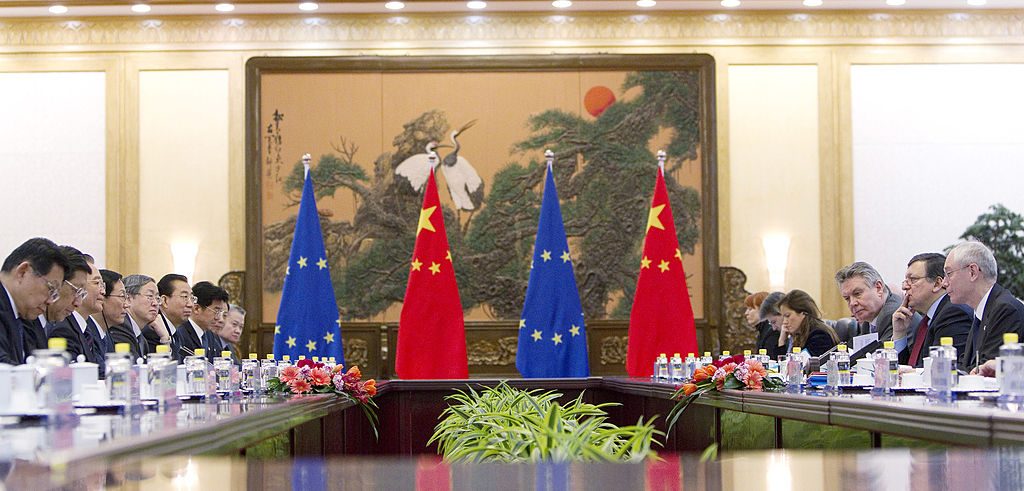Event details
- Stockholm Environment Institute 87D Linnégatan 104 51 Stockholm
- February 12, 2020
- Wednesday, 8:00AM to 10:00AM
- Mistra Geopolitics
Contact event manager
Book your tickets
Can the EU and China save the Paris Agreement in 2020?
Wednesday, 8:00AM to 10:00AM
February 12, 2020
000000
Can the EU and China save the Paris Agreement in 2020?
Wednesday, 8:00AM to 10:00AM
February 12, 2020

Can the EU and China save the Paris Agreement in 2020? Avoiding trade-wars and increasing joint ambitions?
The EU-China Summit in Leipzig in September 2020 will gather heads of state at a critical point leading up to the UNFCCC climate change conference in Glasgow. This will be an opportunity for the EU and China to demonstrate leadership and build the momentum required to bring the world on track with the goals of the Paris Agreement and limit climate crises.
With the EU now committed to climate neutrality by 2050 and the release of the European Green Deal as part of the implementation plan by President Ursula von der Leyen’s new European Commission, the EU is sending strong signals. But questions remain about the role of China, which is now the country with the world’s largest territorial emissions of greenhouse gases and also has a growing global carbon footprint from investments in carbon-intensive infrastructure abroad.
Could the EU persuade China to join a coalition to lead the way to a path consistent with the goals of the Paris Agreement?
Policy instruments such as the emissions trading scheme and now carbon border adjustments proposed in the European Green Deal can have a profound effect on export-dependent economies like China and even provoke retaliatory trade actions. Market forces alone are beginning to squeeze out coal in Europe and countries with large existing carbon-intensive capital investments such as the US and Australia.
How might trade patterns realign and what would be the consequences for China as the world’s primary manufacturer? Will the EU take responsibility for the greenhouse gas emissions generated abroad that are associated with its demand for cheap imported goods?
In this breakfast seminar, Mistra Geopolitics will host researchers and practitioners to explore the role China could play in its commitments to reduce emissions at home and its activities and investments abroad such as the Belt and Road Initiative.
Programme
8:00 – 8:30: Light breakfast
8:30 – 9:40: Seminar
- Research presentation (15min) – Daria Ivleva, adelphi.
China’s investment abroad: possible implications for climate diplomacy.
- Practitioners perspective – climate (5min) –Mattias Frumerie, Climate Finance and Climate Diplomacy, Swedish Ministry for Foreign Affairs
- Panel discussion (25min) The presentations will be followed by perspectives from a panel including:
Mattias Frumerie, Climate Finance and Climate Diplomacy, Swedish Ministry for Foreign Affairs,
Niklas Bremberg, Stockholm University,
Jiayi Zhou, Stockholm International Peace Research Institute (SIPRI),
Mette Kahlin McVeigh, FORES.
- Audience open discussion (10min)
- Closing remarks (5min) – Björn-Ola Linnér, Professor of Environmental Change, Linköping University and Programme Director, Mistra Geopolitics.
9:40 – 10:00: coffee and networking
Join the discussion on whether EU and China cooperation can restore confidence in multilateral climate cooperation after a lack of progress at the 2019 climate change conference in Madrid.



